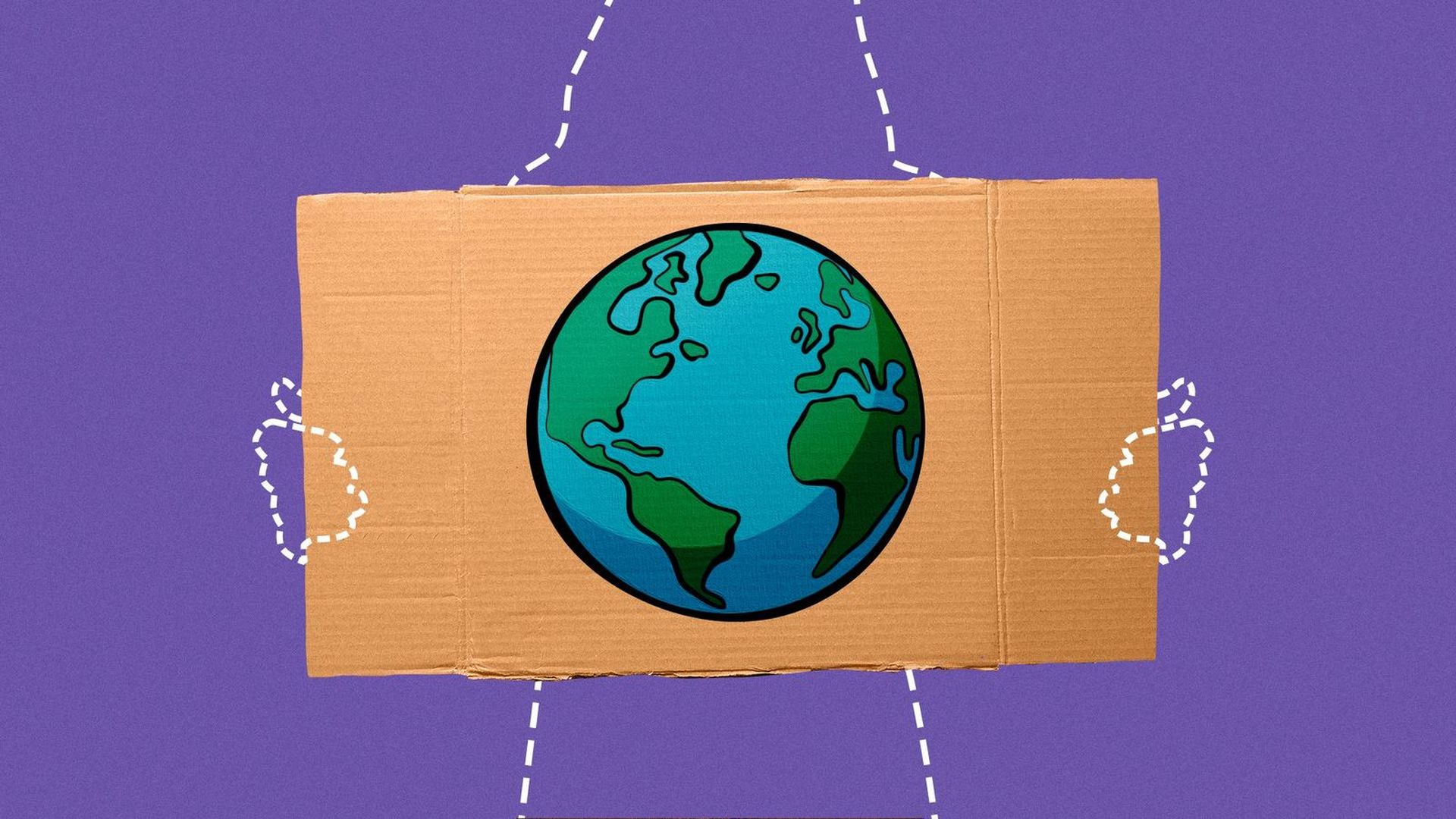Asian Americans left out of climate movement
Add Axios as your preferred source to
see more of our stories on Google.

Illustration: Lindsey Bailey/Axios
Despite elevated degrees of exposure and many decades spent advancing justice, Asian Americans have long been excluded from the national climate movement, activists and scientists tell Axios.
The big picture: Asian Americans across the country are working to change that legacy of omission by leading climate organizations, protests and research.
State of play: Communities of color face higher levels of air pollution at every income level, a racial disparity shaped by redlining and segregation policies.
- Asian Americans are no exception. Compared to white people, they are less likely to report "good" air, water and noise quality where they live — adverse conditions that can be exacerbated by climate change.
Zoom in: In the San Francisco Bay Area, communities of color are exposed to 55% more nitrogen dioxide, a harmful pollutant, than predominantly white communities, according to data from climate technology company Aclima.
- Meanwhile, a 2018 study found Asian Americans were disproportionately exposed to cancer-causing air pollutants in the San Francisco Bay Area.
- Last month, the Bay Area Air Quality Management District (BAAQMD) released environmental justice guidance designed to address health risks in overburdened communities.
- "The burden of breathing unhealthy air is often disproportionately borne by low-income communities and communities of color, many of which are situated closer to busy highways, ports, factories, and other pollution sources," the district wrote in its report, citing a previous Bay Area initiative.
Yes, but: Asian Americans are underrepresented within leading climate agencies behind global climate reports that help set the national policy agenda.
- Within the National Oceanic and Atmospheric Organization, a top climate agency, just 4% of employees across NOAA's workforce identify as Asian men, and 3% as Asian women, according to a recent report.
What they're saying: Climate justice activist Alexia Leclercq, who is Taiwanese with Indigenous ancestry, tells Axios that growing up in Texas, "upper class, white, mostly men" were always depicted as scientists or environmentalists.
- Although representation has "somewhat improved," Leclercq says the larger Asian American community is still "not included" in leadership within these spaces.
- This is due to "Asian people not being heard or seen as activists, which has contributed to the erasure of Asian Americans in the climate space," according to Leclercq, who co-founded the queer and BIPOC-led climate justice nonprofit Start:Empowerment in 2019.
Between the lines: Age-old stereotypes have portrayed Asian Americans as civically disengaged and politically inactive, obscuring the community's history as initiators in the fight against climate impacts they've suffered firsthand.
- Nearly 70% of Asian American voters surveyed in a 2022 poll agreed that Congress and the president "should pass stronger legislation to reduce the effects of climate change."
The bottom line: "We continue to be invisibilized and basically get left behind and never spoken about," Andrea Chu, founder of Chicago Asian Americans for Environment Justice, tells Axios. "My approach to this problem has been not to try and fight for space ... but to create the spaces that we need."


